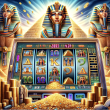Thanks to state-of-the-art software, musicians have access to a wealth of creative options, and sports fans, thanks to https://melbet-bf.com can bet effortlessly. Songs can be recorded without the need for a studio, and digital voice auto-tuning can even help them improve their singing voice.
Users can watch live concerts from the comfort of their own homes and even arrange virtual meetings with their favorite musicians and bands. What other innovations are there? Let’s explore further.
Immersive Music Experiences
Immersive audio has revolutionized how music is enjoyed, providing listeners with access to virtual venues without traveling there – freeing artists from geographic limitations and expanding their fan base.
Immersive technology has given musicians new avenues for making music. Independent creators now have access to affordable production equipment and can share their work globally easily, opening the door for collaborations across genres and genres and making the industry more diverse than ever before.
User-friendly artificial intelligence platforms have also emerged as a significant trend, enabling creators with minimal musical experience to produce tracks through simple text prompts. These tools have proven particularly popular among musicians looking for collaborative partners who can assist with the production process.
Immersive sound is a form of surround sound designed for virtual reality headsets that uses multiple speakers to produce an engrossing listening experience that replicates where listeners stand in space. By simulating multiple speaker locations simultaneously, immersive sound offers more of an engaging listening experience than stereo listening (which uses just two channels to produce left and right channels). Immersive sounds’ perceptual system causes listeners to believe the sounds emanate from all directions at once – an immersive sound experience will immerse listeners deeply within seconds!
Blockchain Technology
The blockchain is revolutionizing music publishing, monetization, and the connection between artists and their audiences. This is due to providing an unbiased and transparent platform that protects copyrights while simultaneously reducing costs and streamlining processes. Furthermore, blockchain has the unique capability of recording metadata permanently on an immutable ledger that makes it nearly impossible for hackers to alter digital files and manipulate music files.
Blockchain technology provides artists with a decentralized system that removes middlemen, enabling them to directly engage their audiences for an improved and personalized experience. Furthermore, this platform has the ability to generate non-fungible tokens (NFTs), unique digital assets which can be used as forms of payment; musicians can then utilize NFTs as payment and create their own digital marketplace offering music-related goods and services.
NFTs can also be used to purchase song downloads or streams, which could help increase royalty payments to artists. Furthermore, smart contracts on the blockchain allow automated transfer of digital assets upon fulfilling predetermined conditions.
While artists were generally enthusiastic about the potential advantages of blockchain, many had negative opinions towards its practical application in their industries. Many believed that real change through blockchain can only occur with active participation by influential business actors who actively disintermediate businesses through this disruptive technology.
AI Vocalists
AI has revolutionized business operations and music production, so it comes as no surprise that musicians and songwriters are turning to voice synthesis software as a tool for creating original sounds and songs. These applications enable creators to rapidly produce content – whether composing lyrics in seconds, synthesizing sound-alike vocals, separating elements on one track from each other or providing inspiration – making these voice synth tools invaluable tools for musicians looking to broaden their sound palette.
These tools offer many different uses, and are accessible to anyone with a computer, microphone and Internet access. Some are browser-based; others are integrated into hardware devices like DJ controllers or synthesizers.
Technology used in music is still in its infancy, yet rapidly progressing. Additionally, it is being leveraged to address some of the music industry’s key challenges – for instance some songwriters and publishers use it to pitch compositions to top artists by showing them exactly how their composition would sound on a track; making it easier to close deals.
On the other hand, however, these technologies could have unintended repercussions. One major risk associated with using such technologies is people could potentially use them to manipulate or deceive other users and produce fake content, potentially harming musicians, fans, and the general public alike.
Social Media Over Streaming
Music marketing trends may shift over time, but some core principles remain constant. Cultivating a dedicated fan base and using innovative ways to promote content remain vitally important; using these trends will keep you ahead of your competitors and ensure your next release is a hit!
2024 will witness the rise of streaming platforms as they unveil new features and enhance existing ones. Platforms already offer personalized playlists, algorithm-driven recommendations, and exclusive content to their users; further advancing music discovery while providing an unforgettable listening experience.
Gen Z has emerged as an influential force in music, with socially and politically aware artists breaking through. Artists are exploring genres and mixing musical styles to produce hybrid sounds; reflecting our globalized world and desire to stray away from conventional categorizations.
Streaming platforms have taken steps toward sustainability, reflecting a larger cultural trend of environmental consciousness. From reducing carbon footprints on tours to using eco-friendly packaging for physical releases, this trend is making an impactful statement about their influence in the industry.
The music industry’s future appears optimistic, as innovative technologies transform how we experience and discover music. Although it’s impossible to foresee exactly how the landscape will change in a decade’s time, technology is clearly making substantial strides forward and helping musicians form stronger bonds with their audiences.










